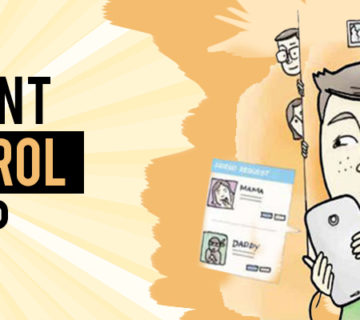Parents always remain in the quest to keep their kids engaged and busy in productive and creative things to utilize their time in the best possible ways. As every child is different, hence there are no simple and uniform techniques through which best parenting can be done. Every parent wants to raise a happy and healthy child; therefore, parenting is known as a tedious job with sufficient responsibilities and duties for both parents. Moreover, in today’s world, when both the parents are usually working professionals, raising healthy, happy, and productive children seems like a demanding and challenging job. Children of today are exposed immensely towards technology and gadgets which often provide instant gratification to these kids in most aspects of their lives. Parents make significant efforts to engage them in productive things other than homework and regular studying activities. According to a study, building productivity and confidence in children makes them more successful in school, sports, and their future aspects of life.
Following are some of the best tips to engage children in productive and healthy habits:
- Establishing a prominent schedule
It is essential to establish a timetable for your child, which can help them work in a better way. You can help your child make time for school homework, activities, and daily house chores. Teach your children to finish their work before they start playing. When children know they can finish their work, have free time to play outside, or use electronic devices, they will be more motivated to improve work efficiency.
- Setting a time limit for using gadgets
Help your children develop healthy habits by setting time limits for electronic products. Usually, two hours of on-screen playtime is enough, including TV games, videos, and computers. Encourage your child to have other interests and activities that are not related to electronic products. Children who are fully developed can participate in sports, clubs, and other activities, making them busy staying on TV.
- Enhance Problem-Solving Skills among them
Children are not people who naturally know how to solve problems. Many children stop testing or think there is only one way to solve the problem. It can take a lot of effort to teach your child to solve problems. Play games that teach your child how to solve problems. Solve puzzles for kids and play games that stimulate creative thinking. Give your child a task and ask them to suggest at least five ways to solve the problem. For example, ask her how to move an item from a chair to a table without using a chair. See how many creative solutions he can come up with and discuss the many solutions to the problem.
- Distribution of tasks and responsibilities
Assign various tasks and regular house chores to your children to help them act responsibly. Even young children can perform simple tasks such as washing dishes in the sink. Older children have to do housework every day, and as time goes by, they have fewer memories of doing housework. If you have children, they are more likely to take responsibility for remembering what to do. On the other hand, if they do not complete the tasks on time, they will have to deliver the consequences.
- Encouraging children with rewards
Give rewards for your child’s good work. Just as adults receive wages for work and employment, children should also receive some form of reward for work. Give your child a monetary reward also when they finish the chores in a better way. Make rules about how much they can spend, and how much it will save so you can teach your children to be financially responsible.
- Do not demand perfection
No one can be perfect, so don’t torture yourself or your children with too much standard. Make a conscious effort to ignore the stress, and you will be more relaxed. The relentless pursuit of perfection and success will quickly deplete children. Parents who place too much emphasis on performance tend to make their children more depressed, anxious, and aggressive. Therefore, regardless of the child’s success or failure, we should value the child’s efforts and dedication.
- Assign actual responsibilities
Encouraging your children to reach goals and reach goals from an early age can enhance their happiness. Talk about your children’s unique contributions to the family. Even children from the age of three can play a significant role in the family. Assign appropriate roles to improve children’s skills. For example, if your child wants to organize things, please arrange a table for him or her. Once your child knows that you believe in your abilities, you can easily achieve happiness and confidence in your adult journey.
- Let them make the decision
If your child can make choices from childhood, they will be able to trust their judgment, when they will grow up. Sometimes their decision can be wrong and fail. However, keep in mind that failure can teach a major lesson. When they are young, don’t let them choose too much, but ask them to decide what to wear to the park and what to eat for dinner. Give them 2-3 options.
- Teach them to use technology wisely
Kids love gadgets by nature; therefore, they are more attracted to use smartphones. As they grow older, their attractiveness can be amazing, and you may not even realize it when your child is getting a smartphone addiction. The internet also has other risks, such as cyberbullying, online predation, identity theft, etc. Make your kids aware of the drawbacks of the technology and use the child monitoring app to apply screen time limits to their devices.
- Encourage them to learn gratitude
Happiness research has always been associated with gratitude with emotional happiness. People who maintain a gratitude journal will be more reliable, and their overall life will be better. A child is not allowed to keep a diary. However, you can increase your gratitude by asking your children to say something they would like to say out loud every day. This habit is fueled by a variety of positive emotions in children and will lead to happiness.
Conclusion
Although engaging children in healthier and productive habits seem to be difficult, these activities will go a long way in maintaining a confident and healthy kid. It is essential to give your child ample time and opportunity to practice knowledge sharing, and you should always appreciate and encourage them to do so. Children should also learn about how to deal with difficult situations and compromise with them. Children should also learn basic life skills, such as how to negotiate and how to deal with failure. Studies have shown that children who are engaged in positive and healthy habits have more chances of leading a successful life. A happy child will lead to a healthy and productive human being.




